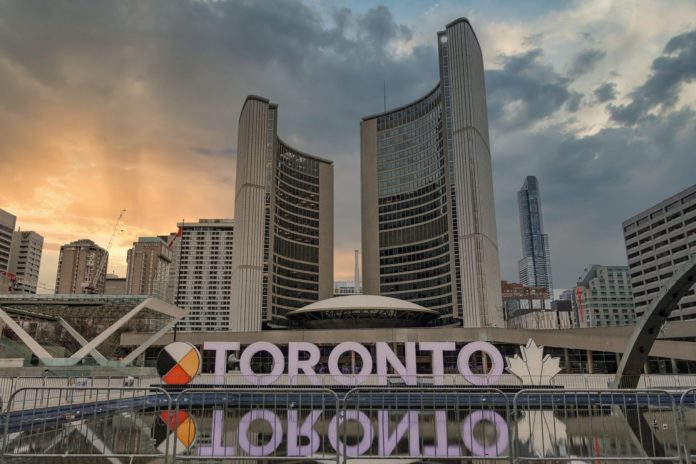Toronto’s real estate market is going hot. The COVID-19 has cooled it down and the rent prices have slowed down recently. Moreover, with high demand and low supply, residents are buying homes in suburbs like Oshawa, which means that Toronto is not only growing but also expanding.
Toronto curbed suburban sprawl by mixing residential lots with apartment buildings. Hence, this led to the construction of condos, lofts, apartments, and other vertical residences. Modern-day condos have retail space on the ground floor.
Purchasing a pre-construction condo is a different process in comparison to purchasing a re-sale condo unit. In terms of a pre-construction condo, there are a lot of stages taking place before it is ready to be inhabited by residents.
One of these stages is interim occupancy. It is a temporary stage in the process of purchase of purchasing a pre-construction condo that comes in just before the final closing.
Interim occupancy – what is it?
Interim occupancy is the period between the day prospective residents get their keys and get access to the property they live in, as well as the final closing. The residents’ lawyer will receive a document titled ‘Interim Statement of Adjustments’ when their interim occupancy date has been confirmed with either the construction company, the builder, or the vendor.
Once the lawyer of ‘soon to be’ residents receive this document, they are then able to move into their building despite the fact the construction is still going on all units in the building. The lower floors often receive interim occupancy first while the builder works their way up to completing construction on each suite and common spaces in the building.
Most of the time, there are a lot of buyers. Hence this occupancy period takes time and coordination to be done properly. It is important to observe that during the interim occupancy phase that the residents do not own the unit yet.
Ownership will be transferred to the residents when the condo has been registered with the municipality. This can be done only when all the construction on the building has been completed.
The timeframe of the interim occupancy is different from one condo development project to the other. This means that the interim occupancy period could last anywhere from a few weeks to a few years. Also, the average time for residents to register their pre-occupancy condo is often between 3 and 6 months.
On a usual basis, if residents are on a building’s lower floors, they will qualify for earlier occupancy date. Therefore, they will have a longer interim occupancy period. It is also important to purchase the condo unit from a reputed developer experienced in constructing the best Toronto Condos to ensure the condominium project is completed and registered in the least possible time.
Interim occupancy and final closing – the difference between them both
The main difference between interim occupancy and the final date of closing is the fee residents will pay and where it’s going. During interim occupancy, they are paying an occupancy fee to the developer because residents have not yet taken possession of the property, but the builder of the projects is allowing them to occupy it.
When the building’s construction is complete and it is registered with the Land Registry office, the final closing date will usually be the same for all the units regardless of whatever floor level they are on.
After the final closing is complete, the interim occupancy fees take a stop and the mortgage payments are thus in effect. Thus, during this temporary stage; the residents are not paying off their mortgage principal.
An interim occupancy fee consists of only the interest portion of what their mortgage would be, estimated condo fees as well as the estimated taxes. The thing missing between the interim occupancy fee and a mortgage is the mortgage’s principal portion which isn’t required as they do not have a mortgage yet.
What things are covered by Interim Occupancy Fees?
During the interim occupancy stage, residents must pay the interim occupancy fee to the developer. They do not need to pay a mortgage fee during their interim occupancy period as they do not legally own the property yet.
The interim occupancy fee is typically lower than what the resident’s mortgage would cost each month as they are not paying the principal portion of the mortgage payment. Whether the condo buyers move in their condo on their interim occupancy date, or not; they still must pay these fees until the final closing.
As per the Condominium Authority of Ontario’s website, the monthly interim fee is based on the following:
- Interest (calculated monthly) on the unpaid balance of the purchase price at the prescribed interest rate.
- Estimated monthly municipal taxes for the condo unit.
- Projected common expense fees for the condo unit.
Developers are not able to make a profit through the interim occupancy fees, as it is an incentive to ensure the residents’ interim occupancy is as short as possible.
Even the Condominium Authority of Ontario states the following:
‘Once the interim occupancy period ends and ownership of the unit is transferred, residents may be owed money if their builder collected more money for property tax than the actual property tax amount.’
Can residents rent their unit during interim occupancy?
For residents to rent their condo unit during interim occupancy, they must get permission from the condo’s builder in writing because technically, the builder is the owner of their unit until the final closing date.
Permission to rent the condo unit can be included in the Purchase and Sale Agreement. It is also best for residents/buyers to clarify their intentions to the builder before the condo’s construction has started so legal complexities can be averted.
If they get the go-ahead and plan on leasing the unit during interim occupancy, it is important to understand that residents/buyers cannot apply for the HST rebate as a principal residence. However, they can do so as an investor.









